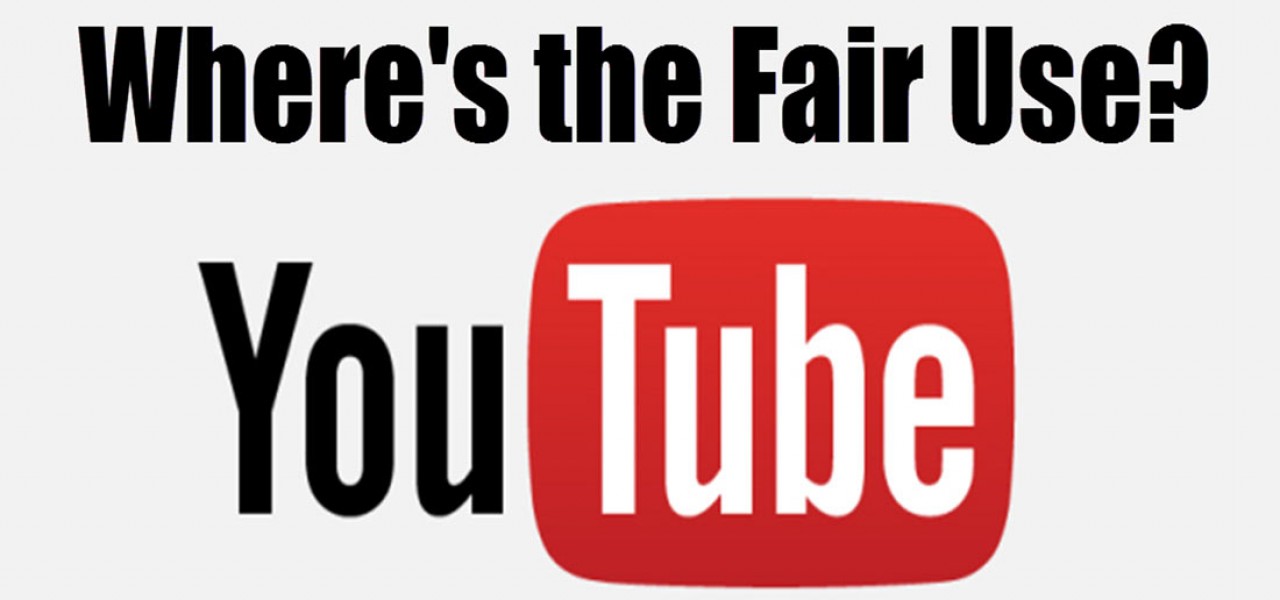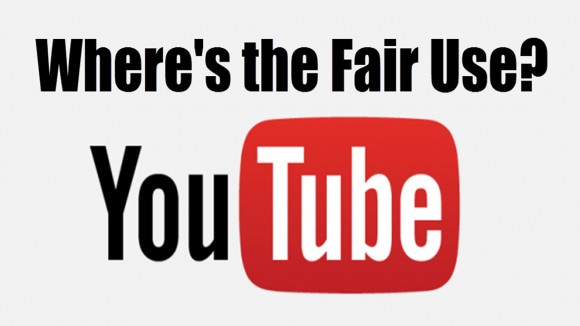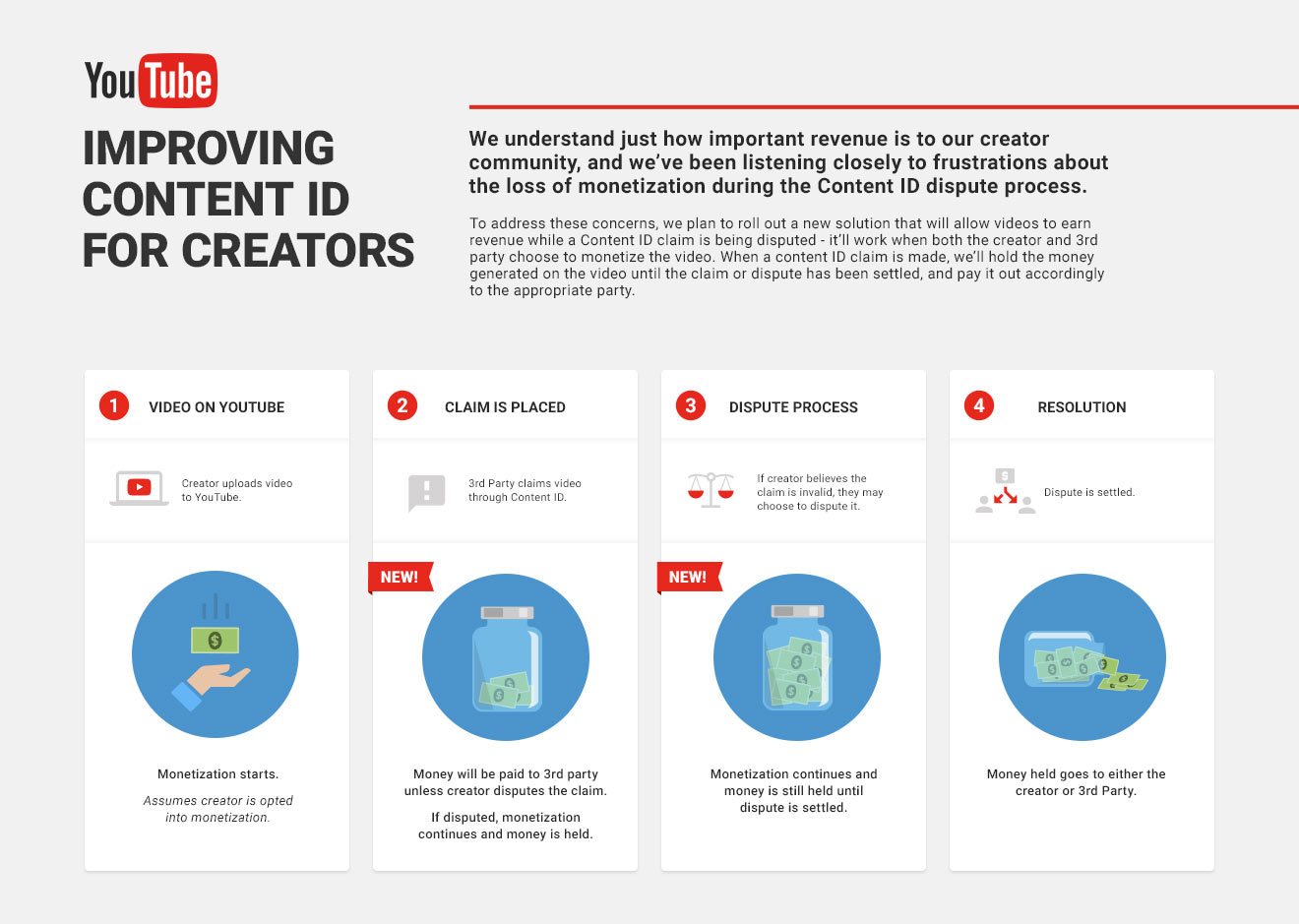

Youtube Announces Improvements to Copyright Claim System, But Does It Really Fix The Problem?
Responding to criticism of its draconian copyright claim process, Youtube has announced an improved system it says it plans to roll out in the coming months.
As covered previously by Cartoon Brew, Youtube content creators frequently complain about the way Youtube handles claims by third parties when a video posted on the service uses copyrighted material, such as songs, or video clips, without authorization. Youtube offers third parties two methods for filing a copyright claim:
1. The third party can make a “copyright strike,” whereupon Youtube removes the supposedly offending video no questions asked; or
2. The third party can make a “Content ID” claim, which allows the third party to choose to either just block the content on Youtube — or mute any songs or music that they claim are copyrighted — or to actually confiscate any earnings the video makes, such as through advertisements.
Both of Youtube’s methods allow for serious abuse by third parties and ignore defenses to copyright infringement, such as the “fair use” doctrine (which under certain circumstances allows for the unauthorized use of copyrighted material). But particularly troublesome has been the confiscation of earnings. The fact that a third party can claim a copyright infringement and confiscate any earnings, without allowing the alleged infringing party – the content creator who posted the video onto Youtube — to defend the video and argue the right to use the copyrighted material strikes many as unconscionable.
It now appears that Youtube agrees. The Google-owned company recently announced that, when both the content creator and the third party agree to “monetize the video,” Youtube will place any earnings into a separate account that it will hold until the dispute is resolved. Upon resolution, Youtube will release the earnings to the prevailing party.
While this is undoubtedly a significant improvement over the current process, the announcement nonetheless raises questions, such as exactly when this improvement will be instituted and what Youtube will do with any potential interest earned when holding the funds.

Also troubling is the fact that the improved process only occurs when both the content creator and the third party agree to “monetize” the video. That means it still allows a third party to completely block content it claims infringes on copyright. In such a case, neither the content creator nor the third party will earn anything from the video. This may mean little to a third party such as a major movie studio or record label, which likely does not rely on income from Youtube advertising to keep its books in the black. But for many content creators, earnings from Youtube advertising is a major source of income and allows them to continue creating content. Blocking their content creates a real hardship for these independent artists.
Undoubtedly, Youtube has created a system of distribution that allows independent artists unprecedented access to a broad audience. In that respect, it has broken down a major barrier to voices that previously had difficulty finding an audience. For that, Youtube deserves much gratitude.
But until Youtube places the burden of proving copyright infringement on the alleging party, then its policies will unduly burden those same independent voices, exactly those most vulnerable to the abuse of their system.
In the real world, if someone were to sue a content creator for infringement, a federal judge would require proof that there was a likelihood of success — and, critically, allow the alleged infringing content creator to defend itself — before ordering that the videos be blocked or removed. The judge recognizes that our copyright system, based in the U.S Constitution, allows not only for the protection of prior works but, importantly, also for the creation of new works.
Why Youtube should think its system better protects the rights of its users better than a federal judge is another question their announcement leaves unanswered.

.png)